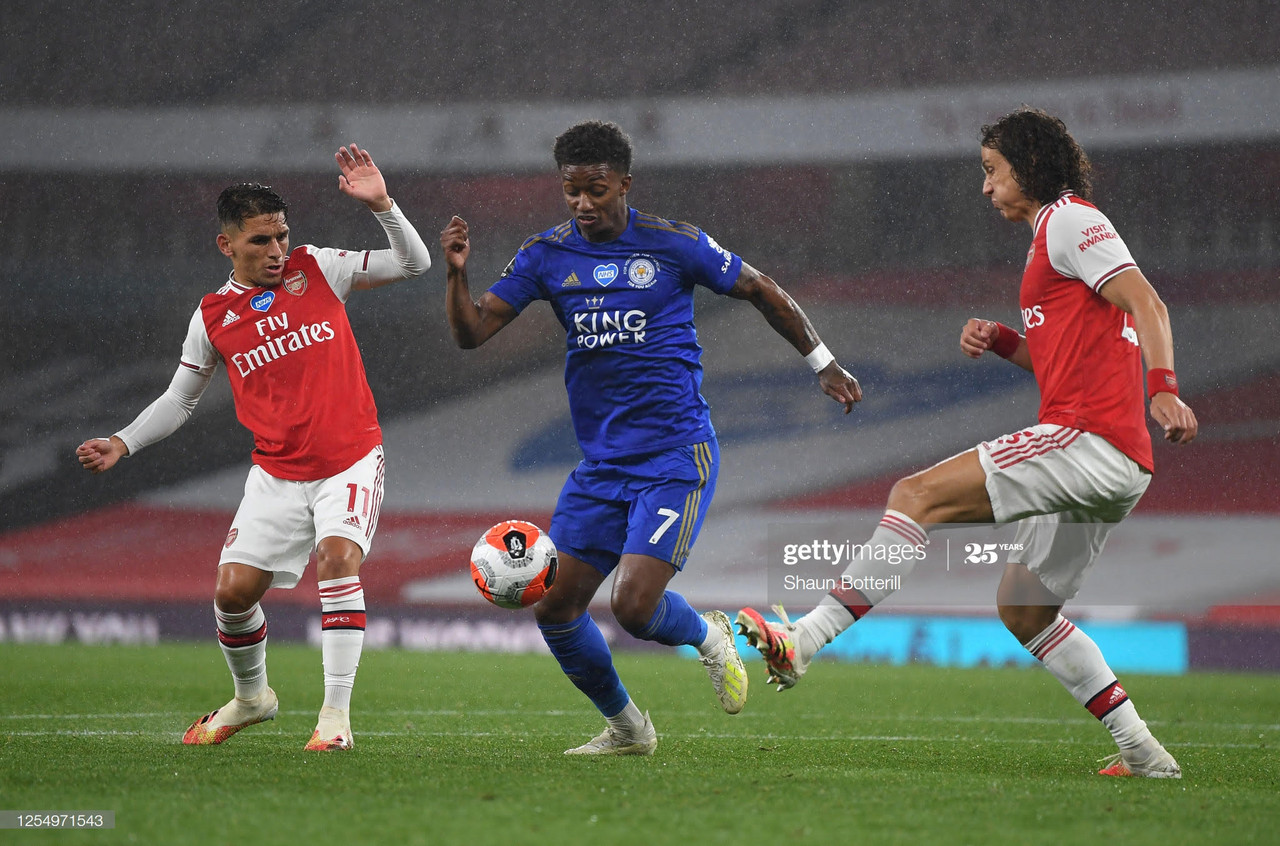Leicester City have made a stuttering start since the Premier League resumed on June 17th but are still very much in contention to secure a Champions League spot for next season.
The Foxes have won just one of their six matches since top-flight football returned, drawing three of those, but there has been an occurrent pattern that Leicester have played better during the second-half of matches.
A factor which could have played a part in this is that each team is now allowed to make five substitutions instead of three, and they can use these in three different periods during the game, although half-time doesn’t count as one of those slots. Some may argue that the so called ‘top six’, who have stronger and bigger squads, are more equipped to handle more substitutes and use it to greater effect, but there’s no doubt that Leicester have benefited from the new rule too.
In City’s last game, there were a combined 400+ top-flight appearances on the bench - three of which were in the Foxes’ squad who lifted the Premier League title in 2016. It included a signing from last summer in Dennis Praet as well as talented wingers Harvey Barnes and Demarai Gray, who have previously proved they can change the course of matches from the side-lines.
Attacking substitutions making an impact
The Foxes’ first game back was a trip to relegation-threatened Watford who gave City a stern test, and it took until late on for them to break the deadlock. Having been able to make up to five substitutes for the first time in the Premier League era, it was one of those Rodgers brought on that made the decisive difference to their play.
Gray had a couple of bright moments in the game versus the Hornets before providing an excellent cross-field pass into Ben Chilwell’s path for him to smash the ball home from 25 yards. Despite that, the Foxes drew the game 1-1 as both goals came in injury-time, but they looked a completely different outfit with the substitutes on the pitch.
Even though City were held to a goalless draw against Brighton & Hove Albion in their second game back, they looked a lot more threatening once Rodgers made those second-half changes. Barnes, Ayoze Perez and Youri Tielemans looked like they were going to help carve open the winner after being brought on but they were unable to do so on this occasion.
After the FA Cup defeat at home to Chelsea, Leicester travelled up to Everton but found themselves two goals behind at the break and looked sloppy throughout that first-half. However, when Kelechi Iheanacho and James Maddison made their way on to the pitch following the interval and the game began to swing in their favour. The Nigerian forward halved the deficit minutes into the second period and the Foxes looked like they were going to equalise but it wasn’t meant to be.
After a promising first 45 against mid-table Crystal Palace where Leicester failed to get the breakthrough, City won the game in the second period and substitutions made a massive impact in that. In particular, Barnes provided an assist for the second and third goals in a 15-minute spell as they secured a much-needed 3-0 victory in their quest for European football.
Against Arsenal on Tuesday, it was Gray again who caused the hosts the most issues when he came on and his late cross found Jamie Vardy who finished with aplomb to inevitably secure Leicester a point which could be very important at the end of the season. Another attacking alteration paid its dividends for City and an eighth career assist in the Premier League as a substitute for the Birmingham-born winger.
Second-half difference in games
Since the restart, Leicester haven’t yet scored a goal in the first-half of any game - one of just two sides to do so which may pinpoint their positive responses to setbacks and poor starts. But it seems like once Rodgers makes a substitute that the Foxes seem to play better and create more opportunities, especially when it is an attacking change.
But it isn’t just an offensive alteration that Rodgers has had to make to change a game since the restart. During the win against Palace, he switched the formation at the beginning of the second-half to three at the back, bringing on Ryan Bennett for the injured Chilwell - a substitution which made Leicester more equipped with and without possession.
This was backed up in the Arsenal match-up as Christian Fuchs, who came on for Marc Albrighton in the 59th minute, nullified the hosts’ threat down the right side after the interval when Leicester moved to a conventional back four; their go-to formation. The Gunners’ Bukayo Saka and Pierre-Emerick Aubameyang were causing the Foxes lots of problems during the first-half with their pace and trickery, but after the break, neither had a real chance on-goal which is a credit to Rodgers’ changes.
Five substitutes available from the bench
In Leicester’s first six games back, Rodgers has made an average of just under four subs per game - of which Gray and Barnes have both came on in four of those apiece. With the competition for places high amongst the City side and as the matches have been played behind-closed-doors, it has given other players opportunities to shine with an extra chance to use more of their squad.
However, it’s not just Leicester who have been making the most of these extra substitutes but some have not worked so well. For example, in the Foxes’ game at Arsenal on Tuesday, Mikel Arterta brought on young forward Eddie Nketiah, but his night was cut short after he was sent off within two minutes of coming on for a high challenge on James Justin. The Gunners therefore had to play the remaining quarter of an hour with 10-men and saw their lead wiped out.
Competition for places in the future
With Barnes and Gray impressing on multiple occasions and providing two assists each during their cameos, there’s no doubt that Leicester have strength in depth, especially in those attacking wide areas. Perez has impressed of late for the Foxes, while Albrighton has showed his versatility and impressed in a variety of positions including out on the wing.
Following Bennett’s arrival on deadline day from Wolves in January, it has given City another dimension at the back with the option to alter their shape or make defensive personnel changes, especially now with the two extra substitutions available. Wes Morgan has also been a regular on the bench since the restart – another proven Premier League centre-back, while the competition in the midfield positions is strong too. Hamza Choudhury and Nampalys Mendy have showed they can compete at this level and contribute well when they have been required to do so.
As the Foxes move into their final four remaining matches of an enthralling season, it is highly likely that substitutes will be a key factor in how successful they are from now until the end of the campaign. With some crucial match-ups in the race for the Champions League to follow in the coming days including a trip to struggling Bournemouth and a final day game against Manchester United, it will be intriguing to see how those matches pan out with the general flow of City games since the resumption.










































